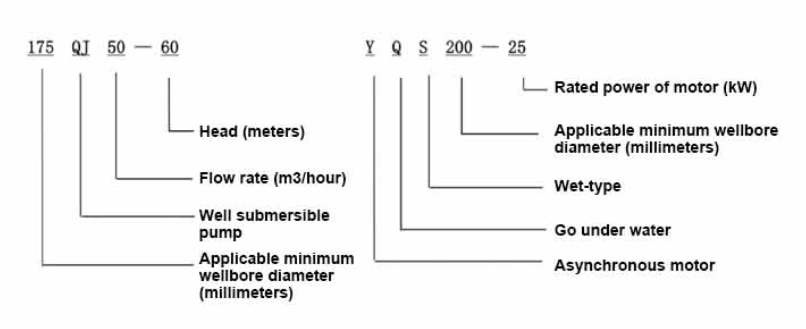Aug . 10, 2024 09:00 Back to list
Exploring the Benefits and Applications of SS Submersible Pumps in Various Industries
Understanding SS Submersible Pumps Efficiency and Applications
Submersible pumps have transformed the landscape of fluid management, particularly in the realms of wastewater treatment, aquaculture, and agricultural irrigation. Among the various types available, SS (stainless steel) submersible pumps stand out due to their durability, efficiency, and adaptability. In this article, we will delve into the features, advantages, and applications of SS submersible pumps, highlighting their importance in modern fluid handling systems.
SS submersible pumps are designed to operate underwater, submerged in the fluid they are intended to pump. The SS designation signifies that these pumps are constructed from stainless steel, a material known for its resistance to corrosion and wear. This property is crucial when the pump is used in environments where it comes into contact with various chemicals, salty water, or other corrosive liquids.
Understanding SS Submersible Pumps Efficiency and Applications
Moreover, the design of SS submersible pumps typically includes a built-in motor, allowing for a compact and space-saving installation. This feature is particularly beneficial in environments where space is limited. The pumps can be installed directly at the source of the fluid—whether it is a well, a reservoir, or a wastewater treatment facility—allowing for a more straightforward and efficient setup.
ss submersible pump

The robust construction of stainless steel also means that these pumps have a longer lifespan compared to those made from other materials. This longevity translates into reduced maintenance costs and fewer operational interruptions, which are critical factors for businesses relying on continuous fluid movement.
SS submersible pumps find extensive applications across various sectors. In the agricultural sector, they are used for irrigation purposes, helping farmers manage water resources efficiently. By pumping groundwater, these pumps enable sustainable agricultural practices, ensuring that crops receive adequate water supplies while minimizing waste.
In the realm of wastewater management, SS submersible pumps play a vital role in the treatment and disposal of sewage and effluent. Their ability to handle solids and debris makes them ideal for transporting wastewater from residential, commercial, and industrial sources to treatment facilities. This functionality is crucial for maintaining sanitary conditions and protecting public health.
Aquaculture is another sector that benefits significantly from SS submersible pumps. These pumps are used to circulate and aerate water in fish farms, ensuring that aquatic life receives the appropriate oxygen levels. Furthermore, they help maintain water quality by facilitating the removal of waste products, contributing to healthier and more productive farming conditions.
In conclusion, SS submersible pumps are an indispensable asset in various fluid management applications. Their corrosion-resistant construction, energy efficiency, and versatility make them suitable for challenging environments across different industries. As industries continue to innovate and grow, the significance of reliable and efficient pumping solutions like SS submersible pumps cannot be overstated. Whether for agricultural, wastewater, or aquaculture applications, these pumps play a critical role in ensuring the smooth and effective handling of fluids, paving the way for sustainable practices and operational efficiency.
-
Submersible Water Pump: The Efficient 'Power Pioneer' of the Underwater World
NewsJul.01,2025
-
Submersible Pond Pump: The Hidden Guardian of Water Landscape Ecology
NewsJul.01,2025
-
Stainless Well Pump: A Reliable and Durable Pumping Main Force
NewsJul.01,2025
-
Stainless Steel Submersible Pump: An Efficient and Versatile Tool for Underwater Operations
NewsJul.01,2025
-
Deep Well Submersible Pump: An Efficient 'Sucker' of Groundwater Sources
NewsJul.01,2025
-
Deep Water Well Pump: An Efficient 'Sucker' of Groundwater Sources
NewsJul.01,2025
-
 Submersible Water Pump: The Efficient 'Power Pioneer' of the Underwater WorldIn the field of hydraulic equipment, the Submersible Water Pump has become the core equipment for underwater operations and water resource transportation due to its unique design and excellent performance.Detail
Submersible Water Pump: The Efficient 'Power Pioneer' of the Underwater WorldIn the field of hydraulic equipment, the Submersible Water Pump has become the core equipment for underwater operations and water resource transportation due to its unique design and excellent performance.Detail -
 Submersible Pond Pump: The Hidden Guardian of Water Landscape EcologyIn courtyard landscapes, ecological ponds, and even small-scale water conservancy projects, there is a silent yet indispensable equipment - the Submersible Pond Pump.Detail
Submersible Pond Pump: The Hidden Guardian of Water Landscape EcologyIn courtyard landscapes, ecological ponds, and even small-scale water conservancy projects, there is a silent yet indispensable equipment - the Submersible Pond Pump.Detail -
 Stainless Well Pump: A Reliable and Durable Pumping Main ForceIn the field of water resource transportation, Stainless Well Pump has become the core equipment for various pumping scenarios with its excellent performance and reliable quality.Detail
Stainless Well Pump: A Reliable and Durable Pumping Main ForceIn the field of water resource transportation, Stainless Well Pump has become the core equipment for various pumping scenarios with its excellent performance and reliable quality.Detail
